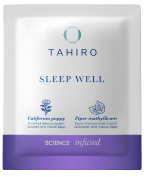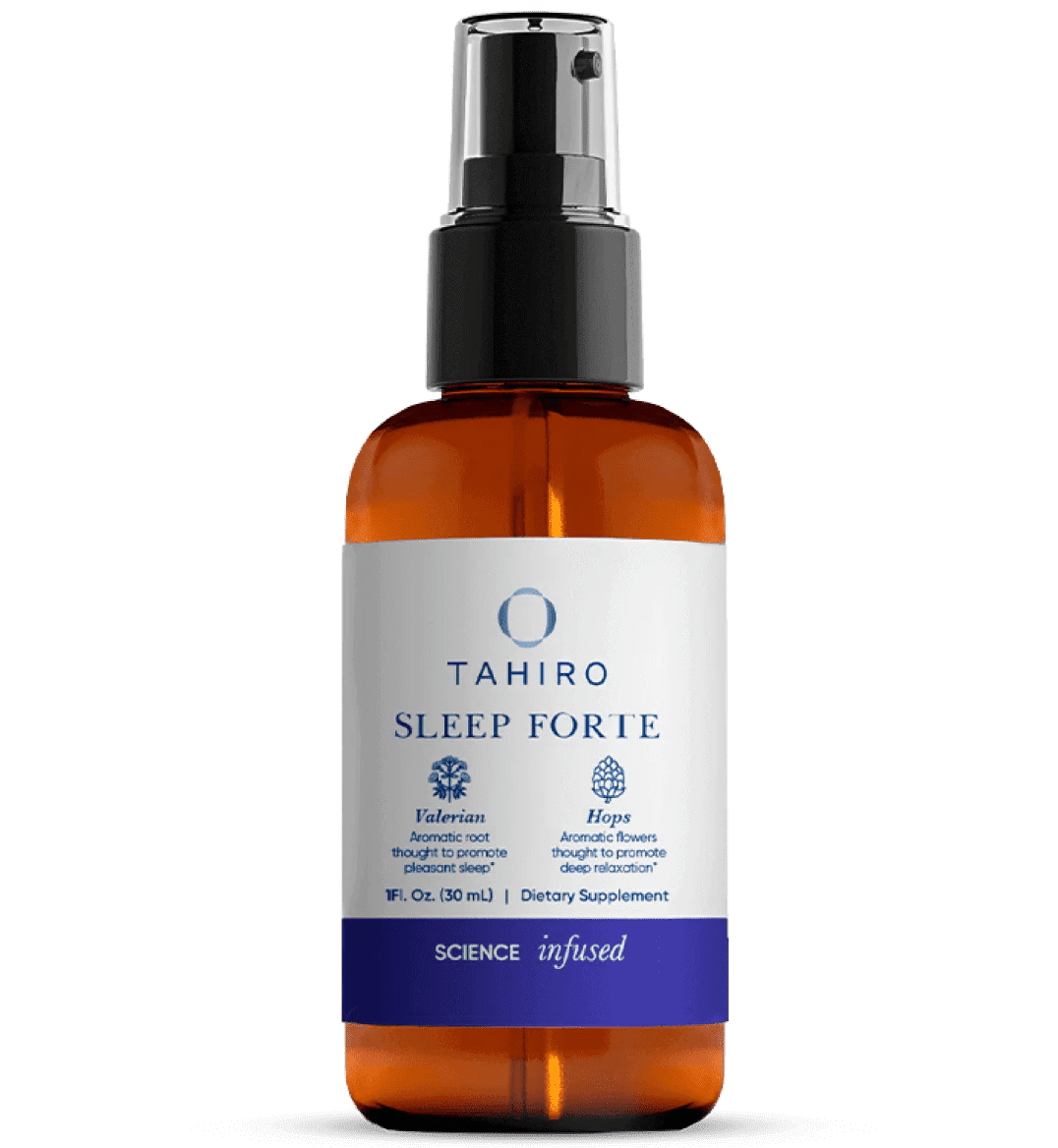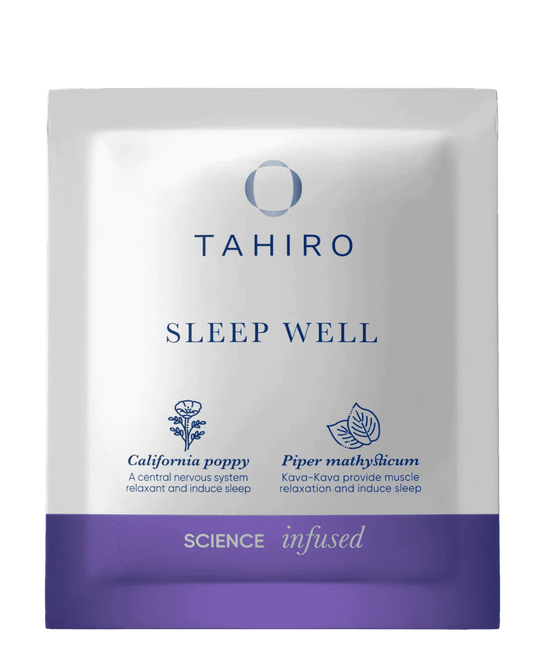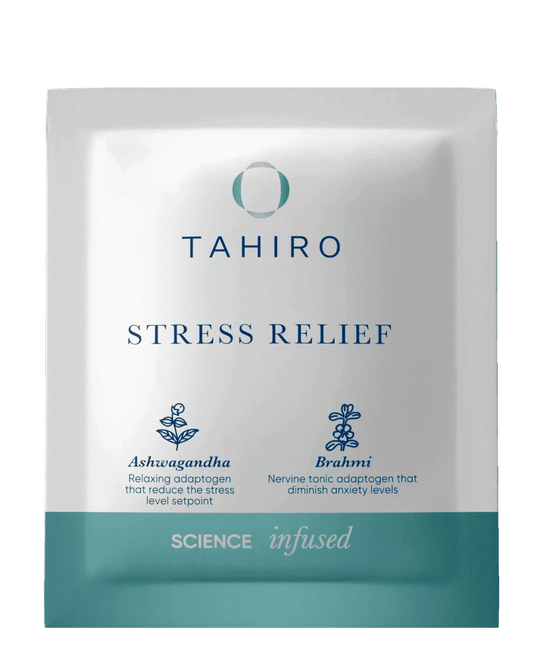The science is clear: poor sleep can have serious impacts on your health, including an increased risk of obesity and cognitive decline.
To combat sleepless nights, many turn to supplements like magnesium and melatonin. But how do you know which one is right for you? Is it necessary to choose between them, or can you benefit from both?
In this blog post, we’ll dive into the world of magnesium and melatonin, comparing their benefits, potential side effects, and how they can contribute to better sleep. By the end, you'll better understand which supplement—or combination of supplements—might work best for your needs.
What Is Melatonin?
Melatonin is a hormone naturally produced by the pineal gland in the brain. It plays a key role in regulating your sleep-wake cycle. The body produces more melatonin when it gets dark outside, signaling it’s time to sleep. Conversely, light exposure decreases melatonin production, helping you wake up.
Since melatonin helps regulate the sleep-wake cycle, melatonin supplements are popular among those with difficulty falling asleep, particularly shift workers suffering from jet lag. They come in several forms, including pills, liquids, and gummies.
While melatonin is generally safe, it’s important to use it correctly to avoid potential side effects. High doses can interfere with the body's natural melatonin production and may lead to dependency.
In addition to aiding sleep, melatonin has antioxidant properties and may support eye health and immune function (3). However, its primary use remains as a sleep aid, particularly for those with irregular sleep patterns.
What Is Magnesium?
Magnesium is an essential mineral involved in over 300 biochemical reactions in the body. It’s crucial for muscle and nerve function, blood glucose control, and bone health. Magnesium also supports relaxation and stress relief, which can indirectly improve sleep quality.
You can get magnesium from several food sources, including leafy greens, nuts, seeds, and whole grains. However, many people don’t get enough magnesium from their diet alone, leading to a deficiency that can cause symptoms like muscle cramps, fatigue, and sleep disturbances.
Magnesium supplements come in several forms, including magnesium citrate, magnesium oxide, and magnesium glycinate. Each type has its absorption rate and potency, so choosing the right one for your needs is essential. You can read about the different forms of magnesium here.
Melatonin vs. Magnesium: Differences & Similarities
Understanding the differences and similarities between melatonin and magnesium can help you decide which supplement may be best for you.
Here is a comparison table stating the differences between magnesium and melatonin.
|
Feature
|
Melatonin
|
Magnesium
|
|
Function
|
The primary role is to regulate the sleep-wake cycle.
|
Supports several bodily functions, including muscle health, and helps with relaxation.
|
|
Source
|
A hormone that is made by the pineal gland.
|
A mineral you can find in foods and supplements.
|
|
Usage
|
Main use is to help with specific sleep disorders like insomnia or jet lag.
|
Can improve overall health, including reducing stress, improving sleep, and improving muscle function.
|
However, while there are several differences between melatonin and magnesium, some similarities are worth mentioning.
- Both can help improve sleep and are both effective natural sleep aids.
- They are available in pills, gummies, and liquid forms.
- Both naturally occur in the body and can be taken in supplement form when needed.
Melatonin vs. Magnesium Supplements: Effectiveness, Side Effects, and Dosages
When considering these supplements, looking at their effectiveness, potential side effects, and appropriate dosages is important. Let’s take a closer look at each one.
|
Feature
|
Melatonin
|
Magnesium
|
|
Effectiveness
|
Effective for short-term use, particularly for regulating sleep patterns disrupted by jet lag or shift work. However, it may not be as effective for long-term sleep issues at large doses.
|
Effective for improving overall sleep quality, especially if you have a magnesium deficiency. It also supports relaxation and reduces symptoms of insomnia over time.
|
|
Side Effects
|
Generally well-tolerated. However, some potential side effects include dizziness, headaches, and daytime drowsiness.
|
Excessive magnesium intake can lead to diarrhea, nausea, and stomach cramps. Still, it’s generally safe when taken in appropriate doses.
|
|
Dosages
|
Typical doses range from 0.5 to 5 mg. Start with lower doses and avoid larger doses, as they can long-term affect the body’s natural melatonin production.
|
The recommended daily allowance (RDA) varies by age and gender. Adults typically need 31- 420 mg per day.
|
If you are thinking about supplementing with either option, make sure you speak with a health professional, especially if you are taking any medication or suffer from a chronic condition.
Melatonin or Magnesium: Which One Is Better?
Choosing between melatonin and magnesium depends on your specific needs. Melatonin is better suited for regulating the sleep-wake cycle, particularly for shift workers and those dealing with jet lag. However, people who suffer from poor sleep can also benefit from taking melatonin. On the other hand, magnesium is ideal for overall sleep quality, relaxation, and stress relief.
Can I Take Magnesium and Melatonin At The Same Time?
Yes, you can take magnesium and melatonin together, and doing so can be highly beneficial. Magnesium helps your body relax by calming the nervous system and reducing muscle tension. This relaxation can enhance the effectiveness of melatonin, which regulates your sleep-wake cycle. By combining these two, you may experience improved sleep quality as magnesium supports overall relaxation, allowing melatonin to work more efficiently in helping you fall asleep and stay asleep throughout the night.







